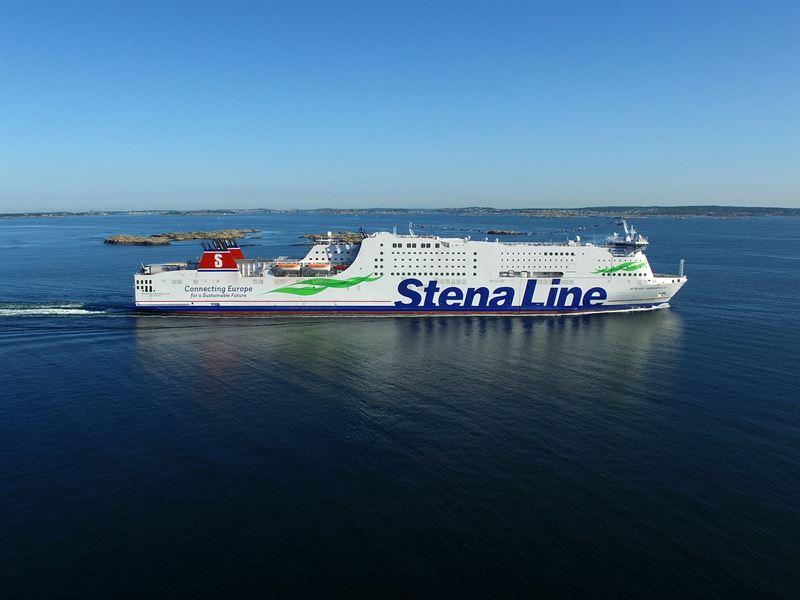
Finnish technology company Wärtsilä, Swedish ferry company Stena Line, and Canadian supplier of methanol Methanex Corporation have marked five years of the successful operation of the methanol-fuelled ferry Stena Germanica.
Image Courtesy: Wärtsilä/Stena
As explained, this is the first ship in the world to run on methanol as a marine fuel, signifying a major milestone in the continued shift towards a more sustainable future for commercial shipping in line with the industry’s decarbonisation efforts.
Stena Germanica was converted to be capable of running on methanol fuel at Remontowa Shipyard in Poland in early 2015. The 240-metre long ferry, with a capacity for 1,500 passengers and 300 cars, was retrofitted with a first-of-its-kind fuel-flexible Wärtsilä 4-stroke engine that can run on methanol or traditional marine fuels.
The ferry began the world’s first methanol-powered sailings between Gothenburg, Sweden and Kiel, Germany in late March 2015.
“The use of methanol as a marine fuel is likely to increase in the future, and high quality, reliable, smart technologies are essential to success,” according to Toni Stojcevski, General Manager, Sales & Development, Wärtsilä Marine.
As part of its programme aimed at the enablement of viable sustainable fuels, Wärtsilä is continuing to invest in methanol for marine fuel applications, and further development work and testing procedures are planned.
Starting January 1, 2020, restrictions on sulphur oxide (SOx) emissions were launched by the International Maritime Organization (IMO) globally. As a marine fuel, methanol is compliant with the IMO’s 2020 regulations by reducing sulphur oxides (SOx) by approximately 99 per cent, and has the ability to meet Tier III Nitrogen oxide (NOx) regulations without exhaust after-treatment. Methanol is already well-positioned globally as a marine fuel, as it is available at more than 88 of the world’s top 100 ports.
“Thanks to projects like this, methanol has been proven as a safe, reliable, and cost-effective marine fuel, and we continue to uncover innovative technological advances that optimise the performance and efficiency of the fuel as the market for methanol-powered vessels keeps growing,” Stuart McCall, Director, Business Development at Methanex, said.
Methanol also offers a clear pathway towards meeting future carbon reduction targets in 2030 and 2050 when produced from renewable sources.
Stena Germanica’s conversion was a co-operation between Methanex Corporation, Stena Line, Wärtsilä, the Port of Gothenburg, and the Port of Kiel. The project was co-financed by the European Union, and the classification of the conversion to methanol was conducted by Lloyd’s Register.
In the five years since the Stena Germanica’s launch, the market for methanol-powered vessels has seen continued growth. Methanex Corporation, through a wholly-owned subsidiary, Waterfront Shipping, operates the world’s largest methanol ocean tanker fleet with eleven vessels. What is more, Stena Bulk recently announced a joint-venture with Proman Shipping to build two methanol-powered vessels with delivery scheduled for the beginning of 2022.
Posted: about 1 year ago
Study Supports Case for Methanol as Sustainable Marine Fuel
Categories:
Rules & Regulation
Posted: about 1 year ago
The post World’s 1st methanol-powered commercial ship celebrates 5th birthday appeared first on Offshore Energy.
Source: LNG World News
